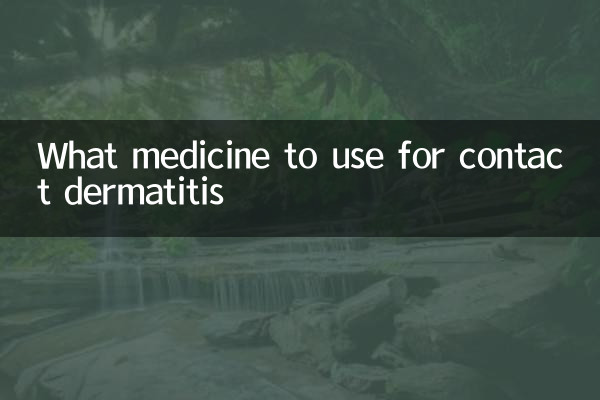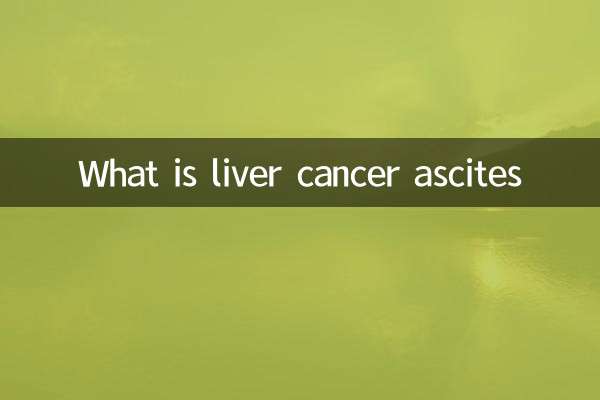What medicine to use for contact dermatitis
Contact dermatitis is a common skin inflammation usually caused by contact with an allergen or irritant. In the past 10 days, there has been a lot of discussion about contact dermatitis on the Internet, especially about the selection and precautions of drug treatment. This article will combine recent hot topics to provide you with structured data and analysis to help you better understand the medication regimen for contact dermatitis.
1. Common symptoms of contact dermatitis

The main symptoms of contact dermatitis include skin redness, itching, and burning sensation, and in severe cases, blisters or peeling may occur. According to recent popular discussions, many patients are confused about the identification and initial treatment of symptoms. The following is a summary of common symptoms:
| Symptom type | describe |
|---|---|
| Mild | Local redness, swelling and slight itching |
| Moderate | Obvious redness, swelling, burning sensation, and persistent itching |
| Severe | Blisters, peeling, pain |
2. Commonly used drugs for contact dermatitis
According to the hot topics on the Internet in the past 10 days, the following are the drug treatment options that patients are most concerned about:
| drug type | Representative medicine | Applicable symptoms |
|---|---|---|
| topical corticosteroids | Hydrocortisone ointment, mometasone furoate cream | moderate to severe inflammation |
| antihistamines | Loratadine, Cetirizine | relieve itching |
| moisturizer | Vaseline, urea ointment | Dry, flaky skin |
| antibiotic ointment | mupirocin ointment | secondary infection |
3. Answers to recent hot questions
1.Can hormonal ointments be used for a long time?
In recent discussions, many patients have expressed concerns about the long-term use of hormonal creams. Experts recommend that hormone ointments should be used for a short period of time (usually no more than 2 weeks). Long-term use may cause skin thinning or other side effects.
2.Is contact dermatitis contagious?
Hot topics in the past 10 days show that many people have misunderstandings about the contagiousness of contact dermatitis. In fact, contact dermatitis is not contagious, but contact with the allergen needs to be avoided.
3.How to prevent recurrence of contact dermatitis?
According to discussions across the internet, the key to preventing relapse is to identify and avoid exposure to allergens. The following are effective preventive measures shared by recent patients:
| Precautions | Specific methods |
|---|---|
| avoid contact | Wear gloves and protective clothing |
| skin care | Use moisturizer regularly |
| Allergen testing | Go to the hospital for a patch test |
4. Medication precautions
Combined with recent hot discussions, the following are the medication precautions that patients are most likely to overlook:
1.How to apply topical medications:Apply a thin layer gently and avoid rubbing vigorously.
2.Sequence of drug use:Apply ointment first, then moisturizer, 15 minutes apart.
3.Side effects to observe:If skin burning sensation occurs or symptoms worsen, discontinue medication immediately and seek medical attention.
5. Summary
Medical treatment for contact dermatitis needs to be individualized based on the severity of symptoms. Recently, hot topics discussed across the Internet have focused on the rational use of hormone ointments, allergen identification and recurrence prevention. It is recommended that patients take medication under the guidance of a doctor and take daily precautions. If symptoms persist or worsen, seek medical attention promptly.
(The full text is about 850 words in total)

check the details

check the details